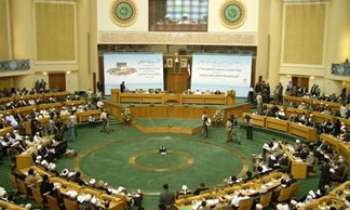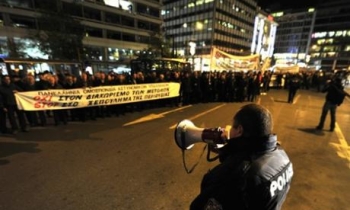LONDON (Reuters) - Rupert Murdoch on Sunday said News Corp. needed to do more to take advantage of strong growth in global broadband and Internet use and defended the media conglomerate's controversial anti-takeover provision.
In an interview on the BBC's Radio 5 program, Murdoch said the company was positioning itself for major opportunities within media and entertainment as broadband use grew strongly.
"We have got to do more of it to take advantage of these great opportunities ahead of us. The Internet is just beginning, it is really only taking off now with broadband," he said.
"There are going to be so many different ways to look at a movie or read a newspaper. I think we are on the eve of an era of a Golden Age for media, all these wonderful inventions are nothing if you can't put something on them. They have got to have content," Murdoch said.
Murdoch was not so upbeat when asked about the level of taxation in Britain or challenges within the newspaper industry.
"I do believe that the country is certainly overtaxed and I think that business is suffering. I think this year is going to be a very tough year. We certainly find in the newspaper business that it is more challenging than I think it has ever been," he said.
Murdoch and his family control about 30 percent of News Corp., an empire that includes the Fox television network, the Twentieth Century Fox film studio, Britain's Times and Sun newspapers and satellite TV operations all over the world.
News Corp., the business he leads as chairman and chief executive, has also purchased a handful of Internet companies over the past several months including the $1.3 billion purchase of MySpace.com owner Intermix Media and IGN Entertainment.
Murdoch said the company's anti-takeover poison pill provision was an important measure to help fend off the risk of a surprise takeover.
The poison pill defense was enacted in 2004 after Liberty Media Corp. , controlled by cable magnate John Malone, built its stake in News Corp. to 18 percent.
In response to a question during the interview that also touched on News Corp.'s business ambitions, sporting broadcast rights and Murdoch's views on UK politics, Murdoch was asked if Malone was friend or foe.
"Personally he is a friend," Murdoch said.
"But the fact is that he has got 18 percent, he doesn't play any part in the company at all and with this as a result we brought in what's called a poison pill which has been much criticized but which is totally common in America," said Murdoch.
He said the measure now made it very difficult for someone to take over News Corp. surreptitiously.
"What it means is that they have to come to the front door and talk to the board and say 'We would like to take you over what is the right price?' They can't sneak up on you and suddenly say, 'Here we are, we have got a controlling block'," he said.
The News Corp. defense is a shareholder rights plan that floods the market with extra shares if any shareholder acquires more than 15 percent of News Corp.'s voting shares, thereby diluting the buyer's stake.
In December, a Delaware Chancery Court judge ruled that a trial can go ahead on a complaint by institutional shareholders that News Corp. reneged on a promise to seek shareholder approval before extending the "poison pill" provision.
Shareholders represented in the suit said News Corp. had promised in 2004 it would seek shareholder approval before extending terms of the pill as a condition for the approval of News Corp.'s plans to reincorporate as a U.S. company.
When Murdoch was asked in the BBC interview why shareholders were so angry with the poison pill he said that was not the case.
"We are in touch with our shareholders every day. We have not had one complaint from a fund manager about poison pill or its extension. But, when you get down to the new corporate governance groups that are around they like to make a noise," he said.









